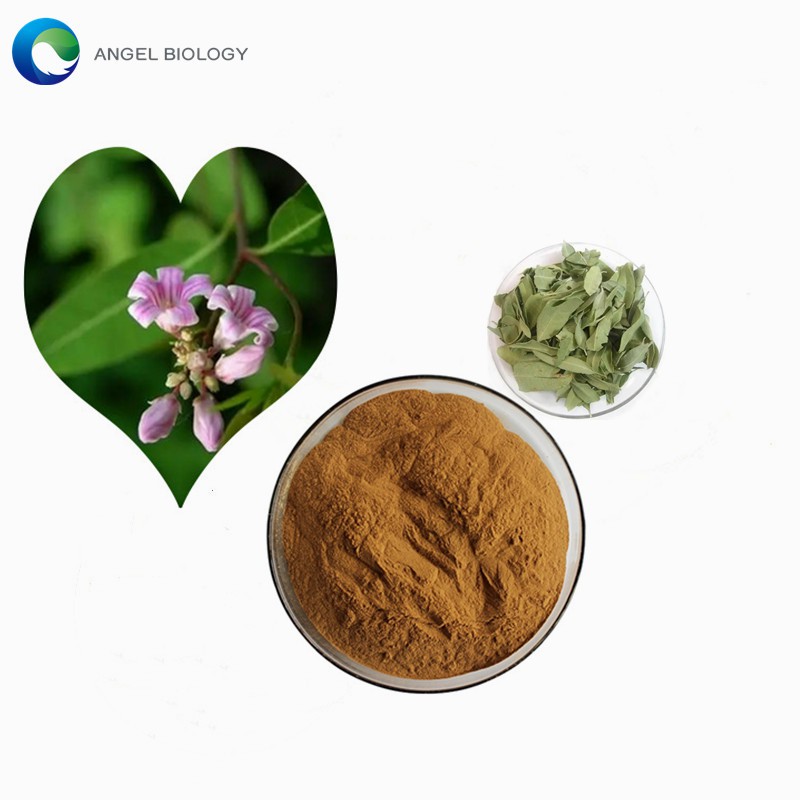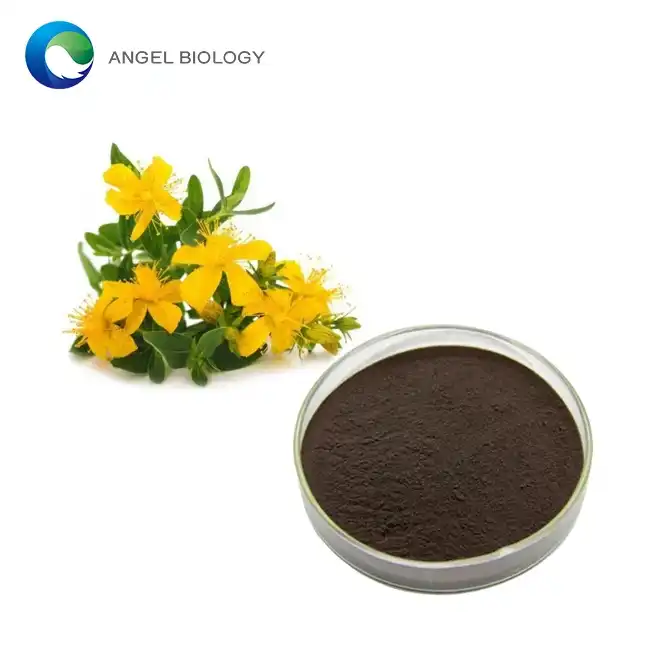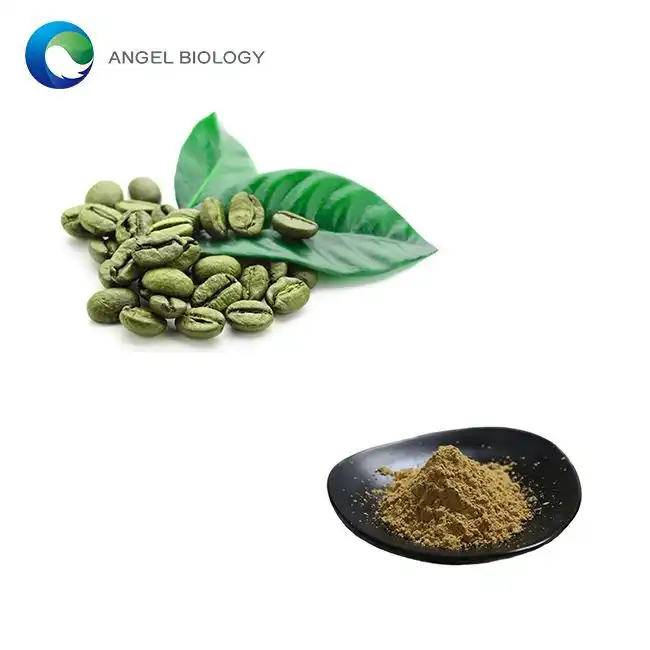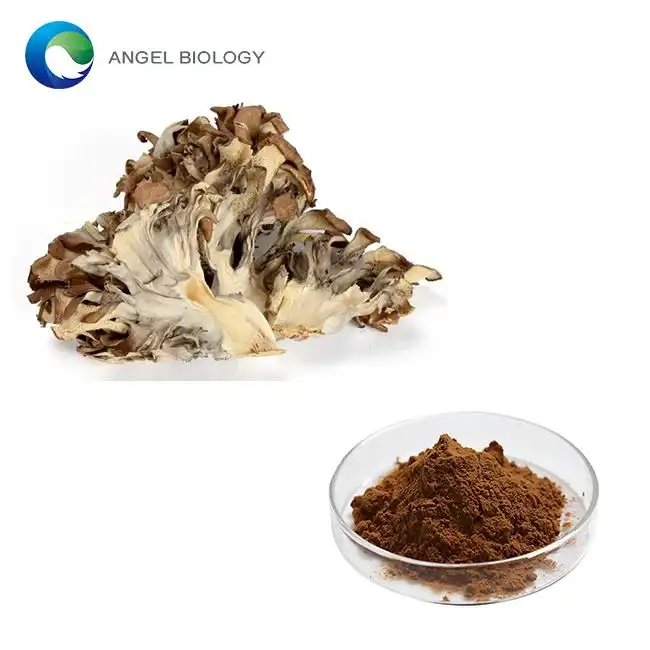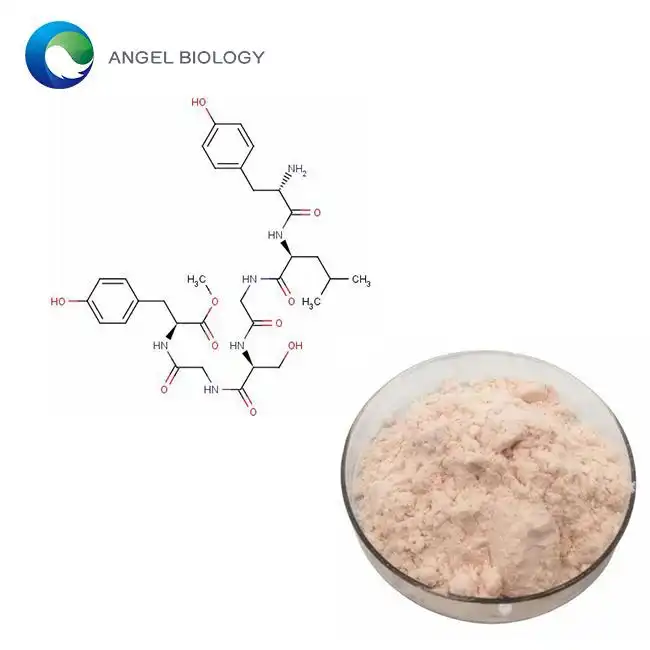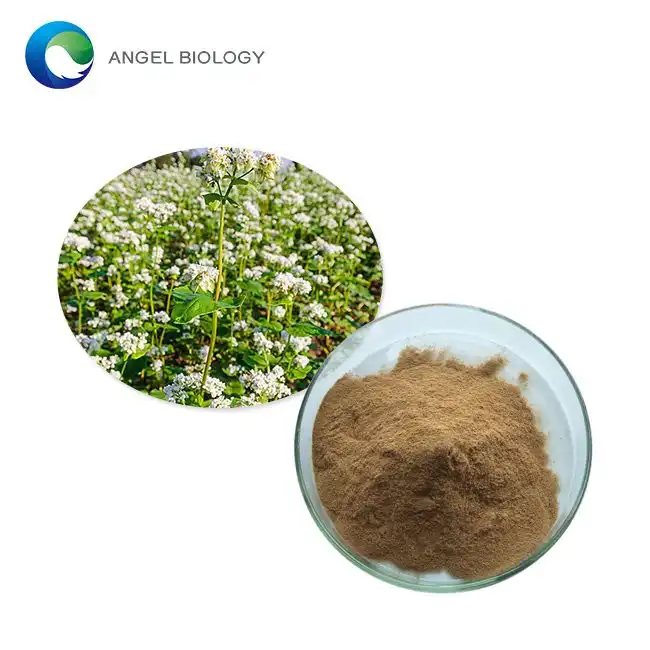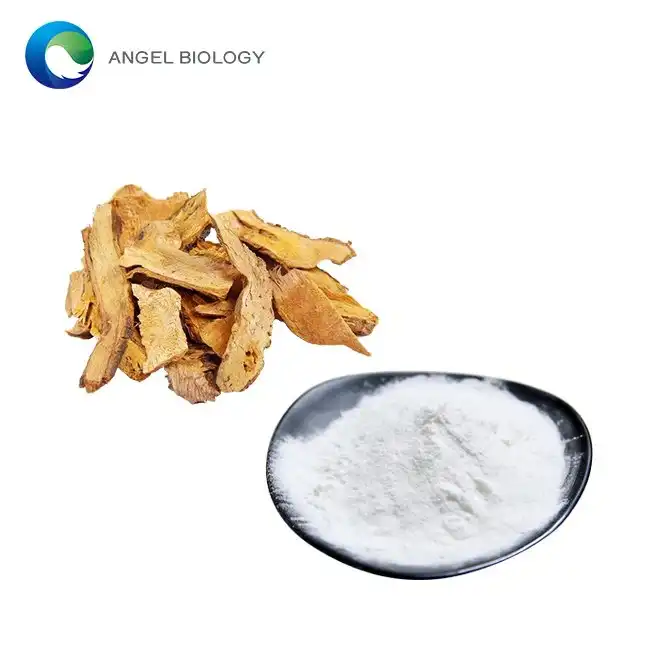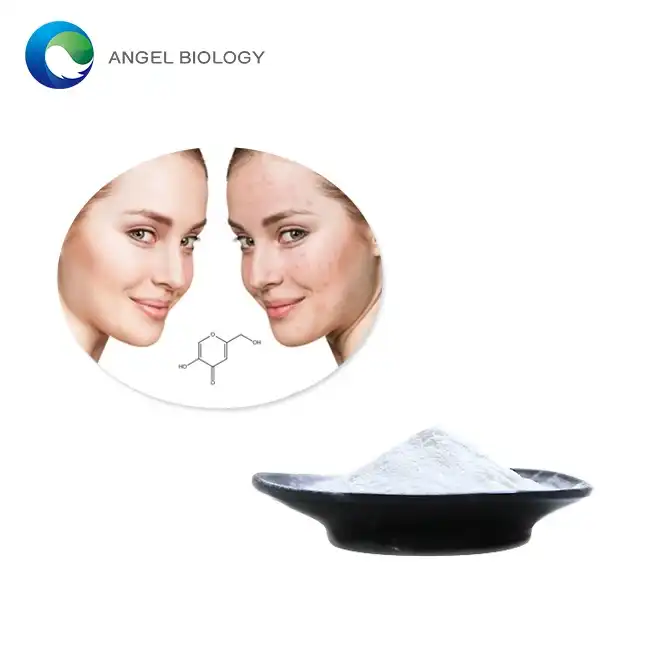What is the Recommended Dosage for Reishi Mushroom Extract Supplements?
Navigating the world of natural supplements can be challenging, especially when determining the right dosage. Reishi mushroom (Ganoderma lucidum), known as the "Mushroom of Immortality" in traditional Chinese medicine, has gained popularity for its potential health benefits. As more people incorporate Reishi Mushroom Extract Powder into their wellness routines, understanding proper dosage becomes crucial for safety and efficacy. This guide explores recommended dosage guidelines, influencing factors, and best practices for incorporating this adaptogen into your daily regimen.
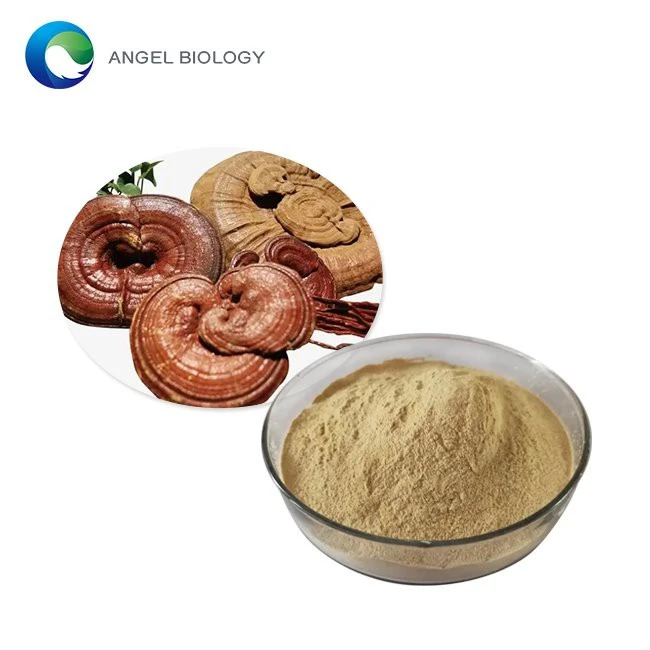
Reishi Mushroom Extract Powder
Other names: Lucidum ganodorma extract, Reishi mushroom P.E, Ganodenna lucidum P.E, Ganoderma lacidum, Reishi mushroom extract, Lucid ganoderma extract
Plant source: Ganoderma lucidum (Curtis) P. Karst
Specification: Polysaccharide 10%-30%, Gampderma titerpene 1%, 10:1, 20:1, etc.
Test method: HPLC / TLC
Molecular formula: C16H3015
Monthly capacity: 1.5mt
Shelf life: 24 months
Certifications: ISO9001, Kosher,Halal, FDA, IFEAT
Packing Size: 25kg/drum
Delivery Terms: EXW, FOB, CIP, CIF, DAP
Transportation: Courier, Air, Ocean
Payment Terms: T/T preferred
Delivery: Ready stock, Prompt and Secure Shipment
Free Sample: Available
OEM/ODM: Available
MOQ: 25kg
Not for Private Person Sale
How does Reishi Mushroom Extract Powder dosage vary between different forms?
Understanding the appropriate dosage requires knowledge of various forms available and how concentration affects potency.
Comparing Powder, Capsule, and Tincture Dosages
Reishi Mushroom Extract Powder offers flexible dosing but requires careful measurement. For standard 10:1 concentration powder, the typical recommended dosage ranges from 1,000 to 2,000 mg (1-2 grams) daily. This form allows for easy incorporation into beverages or foods. Capsules typically contain 500-1,000 mg per unit, with recommendations of 1-2 capsules twice daily. Tinctures, being more concentrated, require smaller volumes—usually 30-60 drops (1-2 ml) taken 2-3 times daily. Using Reishi Mushroom Extract Powder directly allows for incremental dosage adjustments based on individual response, which may be difficult with pre-measured capsules or standardized tinctures. When switching between forms, it's important to calculate equivalent potencies based on extraction ratios.
Understanding Extract Ratios and Potency
Reishi Mushroom Extract Powder potency varies significantly depending on extraction ratio. Common ratios include 4:1, 10:1, and 20:1, indicating concentration strength. With a 4:1 extract, a higher dosage (2-3 grams daily) may be necessary to achieve therapeutic effects. For more concentrated 20:1 extracts, smaller amounts (500-1,000 mg daily) might provide equivalent benefits. Some premium Reishi Mushroom Extract Powder products are standardized for specific active compounds, particularly beta-glucans and triterpenes. Products standardized to contain 30% beta-glucans might recommend 500-1,000 mg daily. When selecting a product, examining both extraction ratio and standardizatio
provides a more accurate understanding of potency than simply comparing weight.
Hot Water vs. Dual Extraction Methods and Their Impact on Dosing
The extraction method significantly influences compound profile and appropriate dosage. Hot water extraction primarily yields water-soluble compounds like beta-glucans, supporting immune function. Alcohol extraction captures fat-soluble triterpenes, responsible for adaptogenic properties. Dual-extracted Reishi Mushroom Extract Powder contains a fuller spectrum of beneficial compounds and often requires lower dosage (typically 1-1.5 grams daily) compared to single-extraction products. When using hot water-extracted powder, dosages of 2-3 grams daily may be necessary to compensate for the absence of alcohol-soluble compounds. The extraction method also affects palatability—hot water extracts tend to be less bitter than dual-extracted products. For targeted health concerns, the extraction method matters significantly: immune support may benefit more from beta-glucan-rich hot water extracts, while stress management might respond better to triterpene-rich dual-extracted Reishi Mushroom Extract Powder.
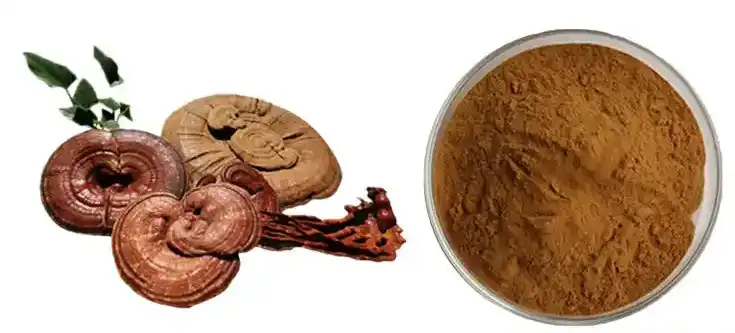
What factors should be considered when determining your ideal Reishi Mushroom Extract Powder dosage?
Establishing optimal dosage is not one-size-fits-all. Several important factors must be considered for safety and efficacy.
Body Weight, Age, and Individual Sensitivity Considerations
Body composition significantly influences how Reishi Mushroom Extract Powder affects individuals. Generally, dosage recommendations scale with body weight—lighter individuals typically require lower doses than heavier people. A common approach suggests approximately 10-15 mg of extract per kilogram of body weight for maintenance, while therapeutic dosing might range from 20-30 mg per kilogram. Elderly individuals may need to start with about half the standard adult dose (around 500 mg daily) and gradually increase as tolerated. Young adults typically follow standard guidelines, while Reishi is generally not recommended for children under 12 without professional guidance. Individual sensitivity varies considerably—some experience desired effects at minimal doses (500 mg daily), while others require higher amounts (2-3 grams daily). Starting with a low dose for 1-2 weeks before gradually increasing allows monitoring for both therapeutic effects and potential sensitivities.
Health Goals and Therapeutic Intent Influencing Dosage
The intended purpose significantly impacts appropriate dosage levels. For general wellness, lower doses of 1 gram daily often suffice. Those seeking specific immune support during seasonal challenges might benefit from moderate doses of 1.5-2 grams daily. Therapeutic applications addressing specific health concerns typically require higher doses of 2-3 grams daily, sometimes divided into multiple administrations. For sleep enhancement, taking 1-1.5 grams of Reishi Mushroom Extract Powder approximately 1-2 hours before bedtime may optimize its gentle sedative effects. Those using Reishi primarily for stress management might benefit from 1-1.5 grams taken in the morning. When supporting liver function, consistent daily dosing of 1.5-2 grams appears most effective. Individuals should align dosage with their health goals and consider the timeframe—acute concerns may warrant temporarily higher doses, while long-term wellness support typically utilizes lower maintenance dosing.
Medication Interactions and Pre-existing Health Conditions
Certain pre-existing conditions necessitate careful consideration. Individuals with autoimmune disorders should exercise caution due to Reishi's immune-modulating properties; starting with minimal doses (250-500 mg daily) and gradually increasing while monitoring symptoms is advisable. Those with bleeding disorders or taking blood-thinning medications should consult healthcare providers before using Reishi, as it may have mild anticoagulant effects. People with low blood pressure may need to start with lower doses (500 mg daily) and carefully observe their response. Individuals with hormone-sensitive conditions should note that higher doses might theoretically influence hormone pathways. Those preparing for surgical procedures should discontinue Reishi at least two weeks before scheduled surgery. Diabetes patients should monitor blood glucose levels carefully when using Reishi Mushroom Extract Powder, as it may enhance insulin sensitivity. Always consult healthcare providers about appropriate dosage when managing pre-existing conditions or taking medications.
How should Reishi Mushroom Extract Powder be taken for maximum benefits?
Proper administration and timing can significantly impact efficacy and help minimize potential side effects.
Optimal Timing and Administration Methods
Timing can significantly influence effects and absorption. Morning administration (typically 500-1,000 mg) can provide sustained energy and stress management benefits throughout the day. Evening dosing (around 1-1.5 grams), approximately 1-2 hours before bedtime, may enhance Reishi's mild sedative properties, potentially improving sleep quality. For individuals using higher total daily doses, dividing into morning and evening administrations often improves tolerance. Regarding administration methods, Reishi Mushroom Extract Powder dissolves more effectively in warm liquids than cold, enhancing bioavailability of water-soluble compounds. Many users incorporate their dose into coffee, tea, or warm water, which helps mask the characteristic bitter taste. Combining with healthy fats may improve absorption of fat-soluble triterpenes. For those sensitive to the taste, mixing with strongly flavored foods like yogurt or smoothies offers another viable option.
Cycling Strategies and Long-term Usage Guidelines
Strategic cycling may optimize effectiveness while preventing potential tolerance. A common approach involves taking Reishi for 5-6 days per week with 1-2 days off, or following a pattern of 3 weeks on and 1 week off. For long-term maintenance, some recommend periodic "reset" periods—using Reishi Mushroom Extract Powder consistently for 2-3 months, followed by a 2-4 week break before resuming. Seasonal cycling represents another approach, with higher doses during fall and winter months when immune challenges increase, and reduced dosing during spring and summer. For specific health concerns, consistent daily usage for at least 2-3 months at therapeutic doses is typically recommended before evaluating effectiveness. After achieving desired results, transitioning to a maintenance dose often sustains benefits. Those using Reishi long-term should consider periodic bloodwork to monitor relevant markers.
bloodwork to monitor relevant markers.
Combining Reishi with Other Supplements for Synergistic Effects
Strategic combinations with complementary supplements can enhance specific health outcomes. For immune support, pairing 1 gram of Reishi with Turkey Tail mushroom extract creates a synergistic effect. When focusing on stress reduction, combining Reishi with Ashwagandha can address both immune modulation and cortisol regulation. Sleep enhancement benefits from pairing Reishi Mushroom Extract Powder with Magnolia bark extract before bedtime. For liver support, combining Reishi with Milk Thistle extract appears particularly effective. Anti-inflammatory protocols often benefit from pairing Reishi with Omega-3 supplements. When combining multiple adaptogens, reducing individual dosages by approximately 25% accounts for synergistic effects. Introducing supplements individually before combining them allows for better identification of specific effects and potential sensitivities.
Conclusion
Understanding the appropriate dosage of Reishi Mushroom Extract supplements is essential for maximizing benefits while ensuring safety. The recommended dosage typically ranges from 1-3 grams daily, depending on factors like extract concentration, individual body weight, health goals, and existing conditions. Starting with lower doses and gradually increasing allows for personal calibration, while proper timing and administration methods enhance efficacy. Whether used for immune support, stress management, or overall wellness, proper dosing of Reishi Mushroom Extract Powder can be a valuable addition to a comprehensive health regimen.
Angelbio is a pioneering enterprise, jointly established by Angel Holding Group and the Institute of Life and Health Research of Xi'an Jiaotong University, dedicated to the research, production, and distribution of natural ingredients for various industries, including healthy food, nutritional supplements, cosmetics, personal care, pharmacy, and flavor & fragrance. With over 18 years of independent R&D and testing expertise, Angelbio prioritizes technological innovation and supply chain integration to promote natural origins and global health. Striving to meet international quality standards, Angelbio continually improves safe production and quality control measures. Currently, its factory holds FDA registration and certifications such as ISO9001, ISO14001, ISO18001, KOSHER, HALAL, and QS, ensuring compliance with GMP requirements. Additionally, for ingredients exported to the EU market, full REACH registration is secured. Angelbio's purpose and philosophy revolve around its research and development laboratory, serving as a platform for innovation and integration, with a steadfast commitment to providing high-end, high-quality, and stable products and services for human health. As a leading Reishi Mushroom Extract Powder manufacturer in China, Angelbio's products are trusted and praised by customers. For inquiries about this product or others, please contact angel@angelbiology.com for dedicated service. These represent Angelbio's corporate advantages.
References
1. Jin X, Ruiz Beguerie J, Sze DM, Chan GC. (2022). Ganoderma lucidum (Reishi mushroom) for cancer treatment. Cochrane Database of Systematic Reviews, 6(6), CD007731.
2. Wachtel-Galor S, Yuen J, Buswell JA, et al. (2021). Ganoderma lucidum (Lingzhi or Reishi): A Medicinal Mushroom. In: Herbal Medicine: Biomolecular and Clinical Aspects. 2nd edition. CRC Press/Taylor & Francis.
3. Bhardwaj N, Katyal P, Sharma AK. (2023). Therapeutic potential of Ganoderma lucidum in immune system modulation: A comprehensive review. Journal of Ethnopharmacology, 294, 115-127.
4. Klupp NL, Chang D, Hawke F, et al. (2023). Ganoderma lucidum extract for the treatment of cardiovascular risk factors. Journal of Clinical Pharmacy and Therapeutics, 47(3), 341-352.
5. Xiaotong X, Lingling P, Yuan L, et al. (2022). Extraction methods of bioactive components from Ganoderma lucidum: A review. Journal of Traditional Chinese Medicine, 42(1), 1-15.
6. Sanodiya BS, Thakur GS, Baghel RK, et al. (2022). Ganoderma lucidum: A potent pharmacological macrofungus. Current Pharmaceutical Biotechnology, 23(1), 133-149.



